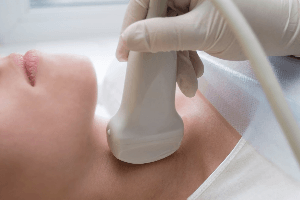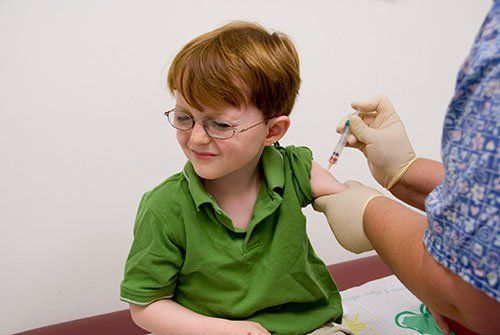5 Different Kinds of Headaches: A Guide
Admin • June 10, 2021

Many people suffer from headaches, at least on occasion. Headache is quite a general term - it refers to an array of different aches and pains that can occur anywhere in the head. Some headaches are nothing to worry about, while others demand medical treatment. Keep reading to learn about the different kinds of headaches and how to deal with each one.
1. Tension Headaches
The most common kind of headaches in adults, tension headaches cause dull aching or tightness in the forehead and back of the head. The discomfort can last anywhere from 30 minutes to several days. You will probably be able to carry on with work or daily activities when you have a tension headache, but you might be irritable and have trouble focusing.
Tension headaches can be caused by hunger, lack of sleep, alcohol use, stress, caffeine, poor posture, or general fatigue. Usually, the headache will go away if you take an over-the-counter pain reliever and rest for a few minutes. Tension headaches do not usually require medical attention unless you get them frequently and can't figure out the cause.
2. Sinus Headaches
Sinus headaches cause painful pressure in the cheeks, forehead, and behind the eyes. They usually occur when you have a cold or respiratory infection that moves into your sinuses, or as a result of allergies. Usually, the headache is accompanied by nasal discharge and sometimes a fever.
For the occasional sinus headache, you can take an over-the-counter pain reliever and a decongestant. Try running a humidifier to loosen the congestion in your nose. If the sinus infection and headaches do not ease up within a few days, contact your doctor. You may need prescription antihistamines or decongestants for relief.
3. Migraines
Migraines are more than a simple headache. Usually, migraines involve not only serious head pain, but also nausea, vision loss, sensitivity to light, and fatigue. Before a migraine sets in, some sufferers experience what is known as an aura - bright flashes of light or color that appear in the visual field. Some sufferers even have trouble speaking clearly or experience numbness in their face during the aura.
If you suffer from migraines, seek professional medical care. A trained physician can help you figure out what triggers your migraines. Common triggers include changes in hormone levels, medications, changes in the environment, alcohol, certain foods like aged cheeses and salty foods, and lack of sleep. Once you know your triggers, you can avoid them, hopefully reducing the frequency of your migraines.
In the short-term, you can ease migraine pain by taking an over-the-counter medication that contains acetaminophen, aspirin, and caffeine. To prevent migraines and reduce their frequency, your doctor may prescribe an anti-seizure drug like valporate, or a beta blocker like propranolol.
4. Cluster Headaches
A cluster headache comes on quickly and causes serious pain that lasts about 30 to 90 minutes. The pain is usually centered behind one eye and has a throbbing quality. The headaches come in spurts - you may have one a day for several weeks, and then be pain-free for months.
Experts are not sure what causes cluster headaches, but they seem to be triggered by stress, changes in the seasons, and certain smells. Keeping a regular schedule and abstaining from alcohol may help reduce the frequency and severity of cluster headaches. Your doctor may also prescribe medications like corticosteroids or triptans.
5. Low-Pressure Headaches
Low-pressure headaches usually occur in the back of the head and are accompanied by neck pain. The pain is worse when you are sitting or standing, and it fades within 30 minutes if you lie down. The pain can be very severe and is sometimes mistaken for migraine pain.
Low-pressure headaches are caused by low spinal fluid pressure. You should absolutely see a doctor if you suspect you have this type of headache. The most common first-time treatment is a procedure called a blood patch, during which your own blood is injected into the spine to increase spinal fluid pressure.
If you're suffering from frequent headaches of any type, don't delay seeking treatment. Contact Hampstead Medical Center PC
to schedule an appointment for diagnosis.

The IUD, or intrauterine device, is one of the most effective methods of birth control available. Unlike birth-control pills, you do not need to remember daily to administer medication, and the device itself lasts longer than shots and is easier to use than rings. Many women find all of these benefits desirable for a birth-control method. There are two general types of IUDs available to women. The first type is the copper IUD, and the other is hormonal. Which one is right for your personal birth-control needs?

Although the risk of cardiovascular disease increases as you get older, many people who die suddenly of a heart attack didn't previously know they had heart disease. That's why identifying risk factors for heart attack and stroke is so critical to cardiovascular health. Fortunately, with regular exams and the many types of screening tests available, doctors can detect early signs of heart disease.

Even if you've never had cause to doubt your thyroid function, if you're a female who has recently given birth, you may be at risk for thyroid issues. An estimated 12 percent of Americans deal with thyroid trouble at some point during their adult lives, and women are significantly more likely than men to develop a thyroid-related ailment. Unfortunately for new mothers, many of the most common signs of an underactive thyroid (like weight gain, mood swings, fatigue, and irritability) are also quite common for those dealing with a newborn's frequent night wakings and the realities of a post-partum body. Read on to learn more about some common (and not-so-common) signs that you could be dealing with a pregnancy-induced thyroid problem as well as some treatment options that can be safely administered or performed while you're breastfeeding. What Can Cause Thyroid Problems During Pregnancy? As with many other hormonal disorders, there are often more questions than answers when it comes to thyroid function. However, researchers have pinpointed a few factors and health conditions that can raise the risk of a woman’s developing a thyroid issue during or immediately after pregnancy. For example, while only around 7 percent of women are at a general risk of developing postpartum thyroiditis, this risk increases to 25 percent for women who have Type 1 diabetes or who dealt with elevated antithyroid antibodies during pregnancy. Women whose anti-peroxidase (anti-TPO) antibodies were elevated during pregnancy may have a 1 in 2 chance of developing postpartum thyroiditis, and those who have dealt with thyroid issues in the past (or during previous pregnancies) also deal with a significantly increased risk. In other cases, thyroid problems may have no cause that can easily be pinpointed; the rush of various hormones during pregnancy and the strain they can put on various systems, including the endocrine system, can create a sort of "perfect storm" in which thyroid problems may thrive. What Are Some Signs You're Dealing With Post-Pregnancy Thyroid Issues? Thyroid problems can take a number of forms, including hypothyroidism (an underactive thyroid), hyperthyroidism (an overactive thyroid), Graves' disease (an autoimmune condition that causes goiter), or Hashimoto's disease (an autoimmune condition in which the body's immune system attacks healthy thyroid cells, eventually stopping all thyroid function). The signs and symptoms for each thyroid disorder are unique and often at opposite sides of the spectrum. For example, hypothyroid patients often report being cold, having dry skin, sleeping more than normal, or gaining weight without trying while hyperthyroid patients sweat profusely, suffer from insomnia, and can lose a significant amount of weight in a brief period. Postpartum thyroiditis often manifests as either an underactive or overactive thyroid, which usually normalizes itself in a few months. Symptoms lasting longer than that or that appear to be getting worse may necessitate medical intervention. What Treatment Options for an Underactive Thyroid Are Best for New Mothers? Whether you suspect you have postpartum thyroiditis or have been formally diagnosed, you may be worried about how your potential treatment options could impact your ability to breastfeed and what effect (if any) they might have on your child. Fortunately, there are a number of effective options from which to choose. If your postpartum thyroiditis is deemed autoimmune in origin, there is some evidence that taking selenium supplements could help normalize your thyroid function without requiring you to take hormonal medication (which might pass into your milk supply). If your symptoms aren't severe and don't impact your daily life, you may instead opt for watchful waiting, maintaining contact with your doctor and reporting any worsening symptoms but avoiding medication or other treatment for the time being. However, if your doctor recommends supplemental thyroid hormone, this usually means some intervention is necessary to prevent permanent damage to your thyroid and the organs and systems that depend on a steady dose of hormones. Make an appointment with Hampstead Medical Center PC to get started taking care of your health.







